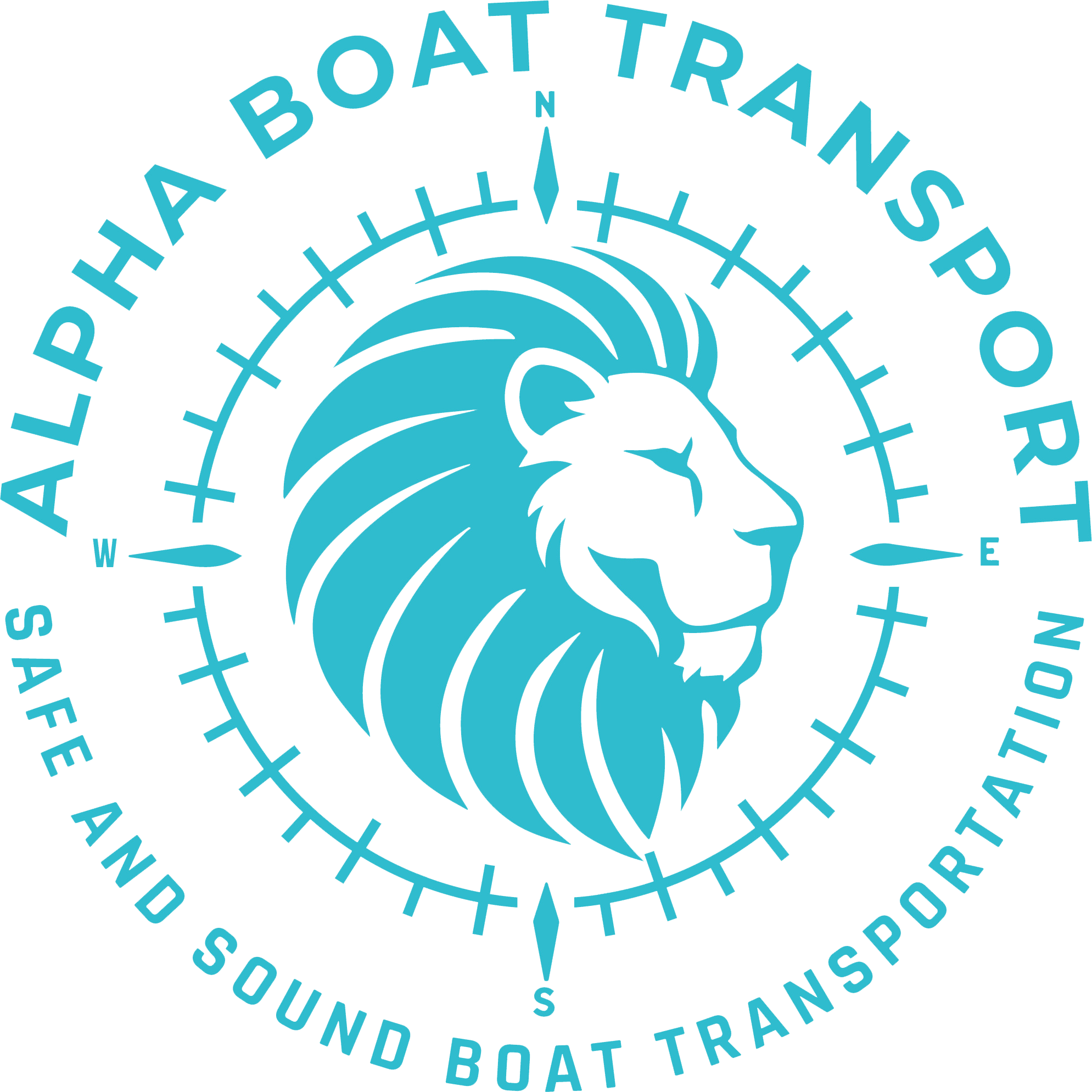The Headache Boat Movers Didn’t See Coming
Listen, here’s what’s really going down out there on the highways in 2025—over 60% of boat owners got blindsided by delays in transport, and it ain’t because your skipper got lost. Nope. It’s the new tangle of state-by-state regulations throwing wrenches into routes that used to be simple. You got boats over 8.5 feet wide? You’re in permit purgatory now. Take Florida—they dropped the threshold for requiring a route survey from 16 feet to 14’6”. That little detail alone? Adds days to a trip.
And yeah, it’s all real. One missed permit, one unplanned low bridge—that’s thousands of dollars and whole weekends lost waiting on approvals.
In this article, we’re breaking it all down: exactly what changed, why it’s wrecking the best-laid transport plans, and how savvy owners—and companies like Alpha Boat Transport—are staying ahead of the chaos. We’re covering new trailer tech, route tools driven by AI, and most importantly—real steps to avoid ending up parked on the side of the road staring at a clearance sign with your boat stuck behind it. Let’s move.
Why Boat Hauling Is More Complicated in 2025
Talk to any serious boat mover, and they’ll tell you this: it used to be tricky, sure. Now? It’s a chess match with DOT forms, escort vehicle requirements, and route surveys that weren’t needed just last year. Regulations are tightening across multiple states, and we’re not talking minor edits.
Take New Jersey. As of January, they require double-escort configurations for over-height vessels even passing through. That’s triggering dead stops and permit denials mid-run. And in states like Texas, weight restrictions due to bridge integrity are putting brand-new limitations on what can travel, when, and how.
When Alpha Boat Transport says they map every route manually—in tandem with AI modeling—they mean it. Their ability to deploy scalable solutions like load-stabilizing hydraulic trailers ensures compliance while shaving hours off each journey. You don’t get that kind of attention from every company… trust me.
boat hauling from up north to Florida now requires serious pre-planning because of these regulatory shifts.
New Rules and Old Roads: When the Infrastructure Bites Back
So here’s the deal. The push behind all these new rules? Infrastructure. Aging roads, crumbling bridges, narrow highway shoulders—state transport departments are scared stiff that one more overloaded boat trailer could collapse a span or jam up morning traffic from Seattle to Sarasota.
In Washington, DOT now flags overwidth permits for any routes crossing Level 2-rated bridges. That kills a lot of what used to be go-to paths. And in California, local municipalities can now enforce their own weight and clearance restrictions—even if you’ve got state permits in hand.
That’s where smart route planning becomes non-negotiable. Alpha’s crews pre-run logistically complex paths using GPS-tagged safety checks. That’s not just tech—it’s boots on the ground.
Permit Confusion Is Costing Boat Owners Big Time
You ever try to file for an escort-required oversize load in South Carolina with less than 72 hours notice? Good luck. Regulations there now mandate a three-day minimum processing delay—even for digital submissions. Don’t even get me started on holiday weekends.
What’s worse? Many boat owners don’t even know these rules exist—until they’re stuck. And the permit offices? Yeah, they’re open Monday to Friday, 9 to 3. Not exactly customer-service optimized.
Alpha Boat Transport doesn’t gamble with this stuff. Their logistics team maintains live databases of state permit schedules and escorts availability windows. That means you’ll never find your yacht grounded over missing documentation again.
Hydraulic Trailers & Floating Decks: The Tech That Helps (But Isn’t Magic)
Let me put it this way: hydraulic platform trailers and advanced lift systems? They’re lifesavers. Load stays balanced, turning radius improves, and ground clearance adapts in real-time. But they don’t pull permits for you, and they sure don’t duck under a 13’6” bridge if your mast’s poking into the clouds.
What they do is eliminate internal instability risks, especially on winding roads in mountain states. Meaning safer travel with less insurance risk. Alpha’s newer fleet integrates this tech standard—especially for large vessels like catamarans and long-haul yachts.
And yeah—long-distance boat hauling with adaptive suspension literally smooths out the ride. But don’t think tech replaces planning. It’s only a piece of the puzzle.
The Rise of AI Route Tools—But Don’t Rely on Google Maps
Listen, AI’s hot right now, and for good reason. Boat movers using real-time machine learning to predict bridge clearances, load-safe routes, and traffic bottlenecks? They’re ahead of the curve. But here’s the mistake: thinking generic GPS apps cut it.
Route optimization tools made for marine transport? They factor in permit corridors, enforcement zones, and seasonal limitations. Alpha pairs AI outputs with human expertise—guys like Tony on their route desk who cross-checks every trip detail twice.
It’s that kind of diligence that saves vessels from sitting idle outside of towns with “No Oversize Loads Allowed After 4PM” signs. Oh yeah—those exist. Saw one myself last month near Tallahassee.
If you’ve got a Texas-bound run without those tools in play, you’d better reschedule. Or prepare to wait it out—on your dime.
Winter Closures and Weekend Bans: Seasonal Curveballs Owners Overlook
So anyway, speaking of headaches—how many owners realize that several northern states ban oversize boat moves on weekends from November through April? Probably not enough. Ice, reduced patrol crews, and poor visibility have turned weekend hauling into a fine-generating trap.
And then you got local townships tossing in rules about school zones, holiday blackouts, and more. Try explaining to a marina manager why your delivery missed its window ‘cause of “Section 8f of DOT Rule 221.”
Alpha Boat Transport factors all of this into their planning—every mile, every hour logged before departure. That’s why industry lists keep putting them near the top. Not rocket science—just showing up prepared.
What Makes a Company the Smart Choice This Year?
Bottom line is: boat movers in 2025 need to be more than just a guy with a trailer and a diesel pickup. You need intel. You need compliance experience. And you need preparation that accounts for delays before they happen.
Here’s what to look for:
– In-house permit specialists with state-by-state regulation proficiency
– Real-time AI supplemented by human dispatch cloning
– Weather and seasonal route rerouting options
– Experience with specific vessel types and hull requirements
– Availability attestations from escrow-protected logistics contracts
It’s no surprise Alpha checks every one of those—because they’re engineered for complications, not just coordinates.
Frequently Asked Questions
Why are boat movers seeing more delays in 2025?
New state regulations have tightened width and height thresholds that trigger extra permits, surveys, and escort requirements. Boat movers are facing more red tape than ever, especially in states like Florida, New Jersey, and Texas.
Can boat movers still avoid escort vehicles for wide boats?
In some cases, yes—but typically only if the width remains under 12 feet and the height below 13.5 feet. Above that, many states now require pilot cars and pre-approved route surveys.
What’s the best way to find experienced boat movers?
Look for companies that combine real-world haul experience with regulatory knowledge. Firms like Alpha Boat Transport stand out by using route optimization and seasoned permit advisors.
How can I check if my boat transport route has low bridges?
Professional boat movers use AI tools and DOT databases to check clearance zones. You can also ask your carrier for a pre-haul survey that maps bridge heights on your route.
Do rules change if I’m transporting a sailboat versus a powerboat?
Absolutely. Sailboats often exceed height limits with masts, while powerboats run wide on beam. Make sure your mover uses vessel-specific transport plans.
Are weekend boat movements still allowed?
In many states—especially in winter—oversized loads are banned on weekends to prevent weather-related accidents and urban traffic disruption during events and sports schedules.
What’s the biggest mistake owners make with boat movers?
Assuming their transporter handles permits automatically. Not all do. And missing just one escort form or bridge notation can delay your haul by days—or worse.

